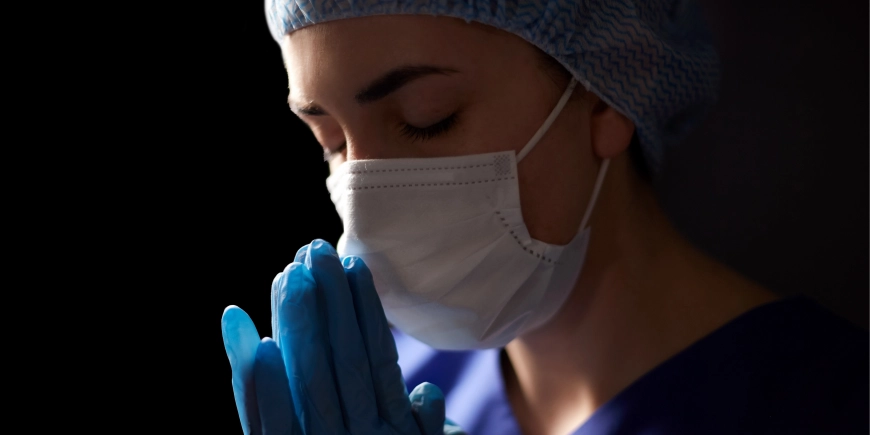Integrating Faith Into Medicine

This is a topic I have thought about for so long. It is a topic I have struggled with myself, for many years. How do faith and science work together? So many questions arise, such as: Can you have faith and still believe in science? If the medical team is telling you there is nothing more that can be done, where are you left? Where does faith come in and what role does it play? How can you have hope when the medical reports leave you with none?
Faith
Faith by definition, is complete confidence or trust in someone. In regards to religion, Faith is trust in God. Myself being a Christian, I think of having faith in God and Jesus, however, this discussion regarding faith and medicine can be applied to any type of faith. Faith gives you hope and often the strength you need when you feel like you have hit rock bottom.
The Science of Medicine
The practice of medicine is both a science and an art. Testing such as labs and imaging are used to provide data that is interpreted to come to a conclusion, often a diagnosis. While at times the practice of medicine can seem black and white, there are often differences in interpretation. It becomes challenging if a piece of paper or computer screen shows a report stating that you or a loved one have results indicating a poor prognosis. Or perhaps you have a loved one in the hospital and based on their symptoms, they are unlikely to recover. Over the years, research, medical technology, and innovation have increased the ability to achieve increased accuracy of interpretations and correct diagnosis and prognosis determinations.
Combining Medicine and Faith
So how do you combine medicine and faith? If you listen to medical recommendations, does that mean you have no faith? Absolutely, not. It is possible and okay to have and follow both.
A few years ago, my son was very sick in the hospital. Every time we met with a doctor or specialist, or read a test report, we were told bad news. “The imaging is not improving”, “the blood work looks worse”, “He will never be able to fully recover”, “We really don’t know what to do next?”, “We have exhausted all testing options”, “Just wait and watch”, and “There is no explanation, it must just be bad luck”. Hearing all this and seeing report after report with unfavorable information, it became difficult to have faith. Family members would remind me to have faith. While I wanted to have faith, I couldn’t wrap my head around how faith could change the actual factual evidence in front of me. At that point, I didn’t even know what to pray for.
It becomes challenging if a piece of paper or computer screen shows a report stating that you or a loved one have results indicating a poor prognosis
A friend reminded me to pray and ask for God to take control of the situation, and leave it in his hands. Pray for the medical team to utilize their expertise to find another or better way and to pray for strength. While it was difficult at first, I continued to pray and my faith resurfaced. I started feeling like a heavy weight was lifting off me, I felt comforted by faith. I began focusing more on the quality of time I was spending with my son and making him comfortable. My mind was clearer. Fortunately, I began to think of new suggestions and the healthcare team found new avenues to explore and manage different things. Today, my son is doing great and living his best life. He and I wouldn’t be where we are today with both science and faith. I have personally experienced so many more similar situations and also watched and assisted in so many similar medical situations.
Regardless if you currently have strong faith or little faith, do not be discouraged. Start having faith that whatever your situation is, you are not alone. Ask for the best outcome, whatever that may be. Surround yourself with faith, a trusting medical team, and loved ones if possible. When working together, medicine and faith are a pretty awesome combination. The great thing is that faith is free and can be used anytime.
